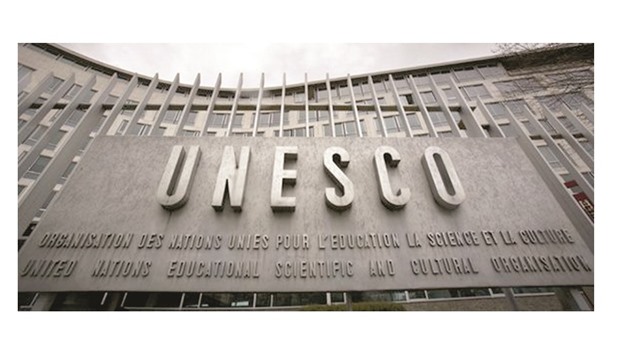Qatar National Library (QNL) and Unesco Doha office are joining hands to celebrate the first International Day for the Universal Access to Information.
The event, to be held at Auditorium Hall, Georgetown Building, Education City on September 28 (tomorrow), aims at promoting universal access to information through the preservation of knowledge and the safeguarding of documentary heritage in Qatar.
The event among other things will include a presentation on Qatar Digital Library, Qatar National Research Fund and QNL’s Open Access Author Fund. The QNL’s digitisation team will also present a live demonstration of the digitisation process used at QNL.
This is the first year of Unesco marking September 28 as the International Day for Universal Access to Information (IDUAI). On November 17, 2015, Unesco adopted a resolution declaring September 28 of every year as International Day for Universal Access to Information.
“IDUAI has particular relevance with the new 2030 Development Agenda, and in particular with Sustainable Development Goal (SDG) target 16.10 which calls for ensuring public access to information and protection of fundamental freedoms,” says Unesco.
The UN body’s ‘Memory of the World Programme’ as well as ‘Recommendation concerning the Promotion and Use of Multilingualism and Universal Access to Cyberspace (2003)’ ensures that the world’s invaluable documentary heritage belongs to all and that multilingualism and universal access remains in the centre of the agenda of Internet development.
In this context, Unesco also does important work to promote the United Nations Convention on the Rights of Persons with Disabilities ensuring that information can help to fully integrate women and men with disabilities into every aspect of social, political and economic life.
Universal access is also central to the UN’s World Summit on the Information Society (WSIS), which recognised the ambition of developing inclusive Knowledge Societies. “Accessibility” is also recognised as one of the four principles in Unesco’s ROAM model of Internet Universality.
Universal access to information is bound up with the right to seek and receive information, which is an integral part of the right to freedom of expression. It is covered by Article 19 of the Universal Declaration of Human Rights and Article 19 of the International Covenant on Civil and Political Rights, says the UN body.
The theme of access was at the heart of the 2016 World Press Freedom Day celebrations in Helsinki. Unesco’s global event produced The Finlandia Declaration, inter alia marking the anniversary of the world’s first freedom of information law, which was adopted 250 years ago in today’s Sweden and Finland.
Since then the adoption of freedom of information laws became a global trend, involving more than 100 countries.
“The International Programme for the Development of Communication promotes many projects relevant to freedom of information, and acts as convening actor for the related indicator under Sustainable Development Goal 16.10.2,” says Unesco.
Unesco also promotes universal access to information and knowledge through its Information for All programme, which assists member states in harnessing the new opportunities of the information age to create equitable societies through better access to information.
The importance of the right to information is highlighted in Unesco-inspired normative documents: the Brisbane Declaration of 2010, the Maputo Declaration of 2008, the Dakar Declaration of 2005, and the New Delhi Declaration of 2015.
The IDUAI is an outcome of advocacy of the African Platform on Access to Information (APAI) and building on work of FOIAnet. Efforts to produce more open governance have also emerged, such as the multilateral Open Government Partnership, with 69 participating countries.
Unesco hopes that the marking of September 28 as the “International Day for Universal Access to Information” will provide for more countries adopting FOI legislation, developing policies for multilingualism and cultural diversity in the cyberspace, and ensuring that women and men with disabilities are integrated.
These steps will further strengthen progress towards the 2030 Development agenda and pave the way for the creation of knowledge societies worldwide.
The QNL-Unesco event is open to researchers, students, librarians and anyone interested in

this field. 2016 is the first year of Unesco marking September 28 as the International Day for the Universal Access to Information.
